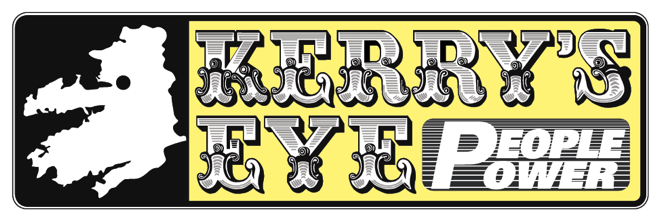
COMMENT
By Ger Colleran
Council must justify continued use of Elon Musk’s X
This is another bone I have to pick with Kerry County Council.
And it follows a move by Sinn Féin Councillor Robert Brosnan to get the Council to cease using Elon Musk’s social media platform X for all purposes, including things like weather warning communications with the public.
Brosnan reckons that X is now a ‘vehicle of abuse’, which, of course, is something I can personally agree with him on given that I’ve been subjected in the past to a proverbial avalanche of abuse for expressing mere opinions.
This abuse came from complete strangers, many of whom made clear that they were Sinn Féin supporters, on account of their little tricolour badges displayed to show how pure green they were.
Anyway, back to Councillor Brosnan.
His call for the Council to cut all links with X follows widespread national and international concerns over X’s pornographic, so-called nudification AI facility Grok. In circumstances where children and adults have had their images used for the production of vile pornographic material – which is manifest, criminal activity facilitated, at the very least, by X – it’s entirely reasonable that Councillor Brosnan wants the Council to stop using X.
However, just when you thought that Councillor Brosnan was making an open-and-shut case, there’s a surprise opposition voice from the Council’s Director of Services Martin O’Donoghue. A reminder of the initial pushback on the civic reception proposal for the footballers (check out below).
Mr O’Donoghue believes Councillor Brosnan’s proposal to cease using X would be ‘going into a space of editorial control’. He said it was a Pandora’s box and added: “It’s like saying if we don’t like a local newspaper’s editorial policy, then we don’t advertise with them anymore.”
Which is pure, unadulterated rubbish, nonsense and balderdash.
It says that because, what X, through Grok, is facilitating is the gross and illegal exploitation of women and children for perverted, sexual-gratification reasons, for pornographic wickedness.
To compare that to editorial policy of a newspaper, local or otherwise, is frankly ridiculous.
Grok is about facilitating criminality of the most foul and reprehensible character; editorial policy in a newspaper is about opinion, such opinion expressed within the strict parameters of Irish law, notably the Defamation Act.
Surely the difference between one and the other is perfectly clear to understand? Which is why it’s hard to fault Councillor Brosnan for describing Mr O’Donoghue’s stated rationale as ‘implausible’.
In fairness to Mr O’Donoghue, he had a few other concerns, including about how around 17,000 people follow the Council on X.
But that concern could be easily allayed by the Council’s use of local media, particularly radio for live events such as flooding, snow, frost, roads diversions, crashes and so on (now I’m drumming up business for Radio Kerry!).
Further, about these 17,000 Council followers on X; Councillor Deirdre Ferris asked how many of them actually live in Kerry, and doesn’t appear to have been told.
The final word should go, rightly, to Councillor Brosnan. He said: “I’m not putting up the white flag on this.”
Fair play, because he shouldn’t. But, just one question for Robert: why are Sinn Féiners so big on flags, and hoisting them all over the place as metaphors?
Just wondering is all.
